
Going Off-Road in a Class A Motorhome?
After years of sitting in a windowless cubicle, dreaming about being outside and trying to work out how to make it happen full time, a gently used 2007 Winnebago Journey 36G Class A diesel motorhome became available. It was definitely larger and much more grown up than we thought we wanted, but with the ability to tow a Jeep for off-road exploring, room for bikes and our inflatable stand up paddle boards, an on-board air compressor for inflating the boards, solar panels and giant holding tanks, we jumped at the chance to ditch the rat race, bought The Bago and haven't looked back.
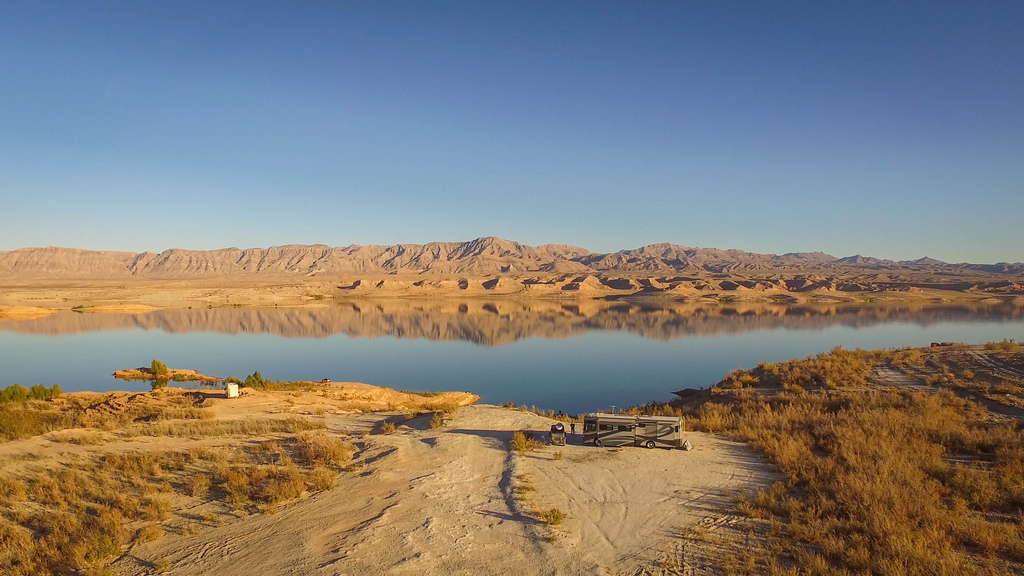
In the nearly two years that we've been on the road, it's become impossible to not notice the explosion of #vanlife on social media and draw the conclusion that a van is the ultimate adventure mobile. While my wife and I do admit to a little van envy at times -- especially the 4x4 models like the new Winnebago Revel -- we have found that The Bago doesn't have to be confined to pavement, RV parks and campgrounds. With some planning, spot scouting and the occasional nail biting, we can get fairly far out there and then stay longer.
Boondocking in Remote Places
Our go-to for researching spots is Campendium. We've found great free camping areas through the site and mobile app. Reviews are written by fellow travelers that often include the dreaded phrase "Not Suitable for Big Rigs." In the beginning, we'd rule those spots out, assuming that if people had trouble getting their 30-foot trailer down a dirt road, there would be no way The Bago would manage.
Getting There
We've since figured out that we may have a higher threshold for a bumpy, rutted, rocky road than others, and the patience to find a way in. When there is somewhere we want to get to, we take the time to disconnect the Jeep, scout the road in, plan how we're going to get into the spot and then slowly go down the road. Sure, it might take us longer to get settled, but the effort is always worth it.
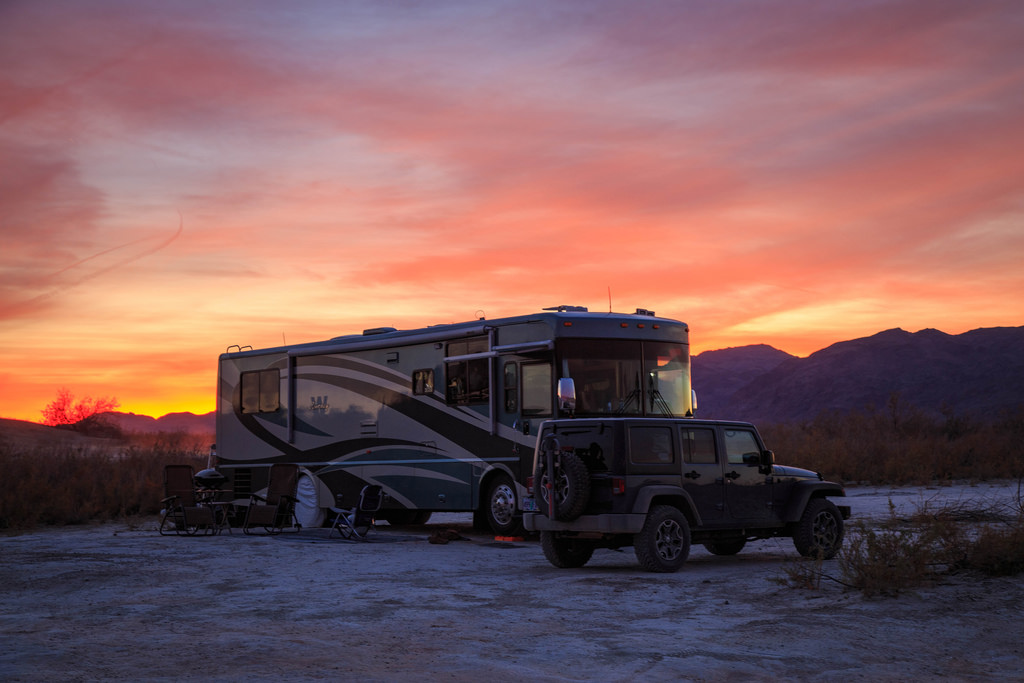
Adventure Prep
Most of these remote places are on public land without water, restrooms or electricity. Often, the nearest town is miles away. The Bago allows us to carry ample food and water. With conservation measures, we can also stretch our tanks to max out the 14-day stay limit.
While it's not necessary and certainly feels decadent while boondocking, we also like to watch a little TV in the evenings. Our four batteries, 300W of solar, and 8500W generator makes that possible, when the sun isn't cooperating.
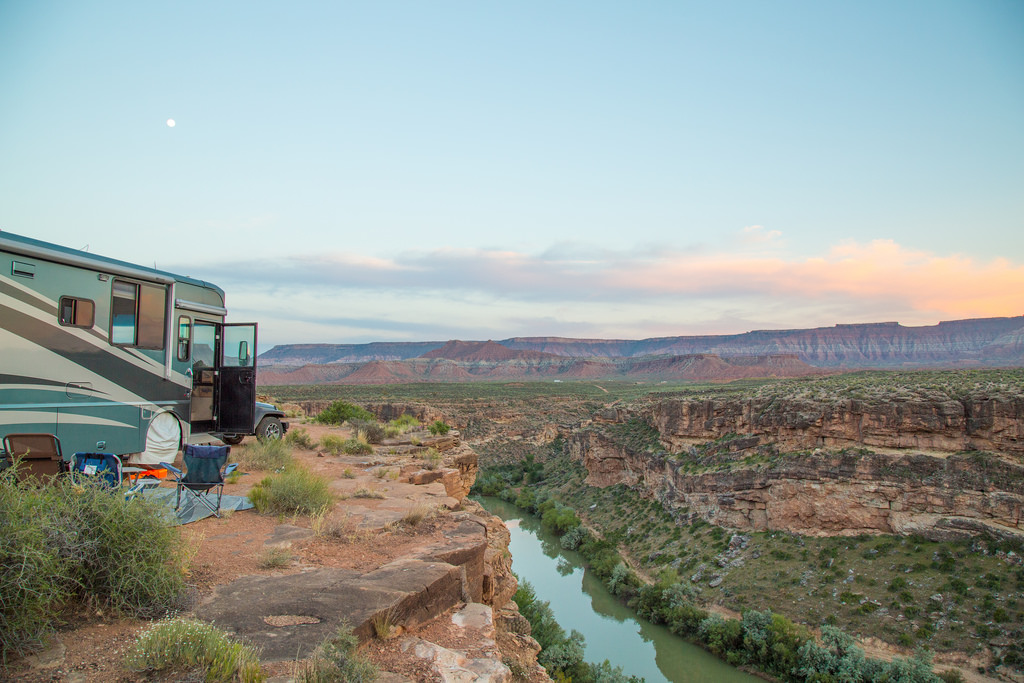
Going Exploring
One of our favorite spots from the past year was by Lake Powell where we explored the submerged Glen Canyon on our stand-up paddle boards. Moab, Utah, was another highlight with slickrock Jeep trails, mountain biking, and amazing hikes into Arches National Park.
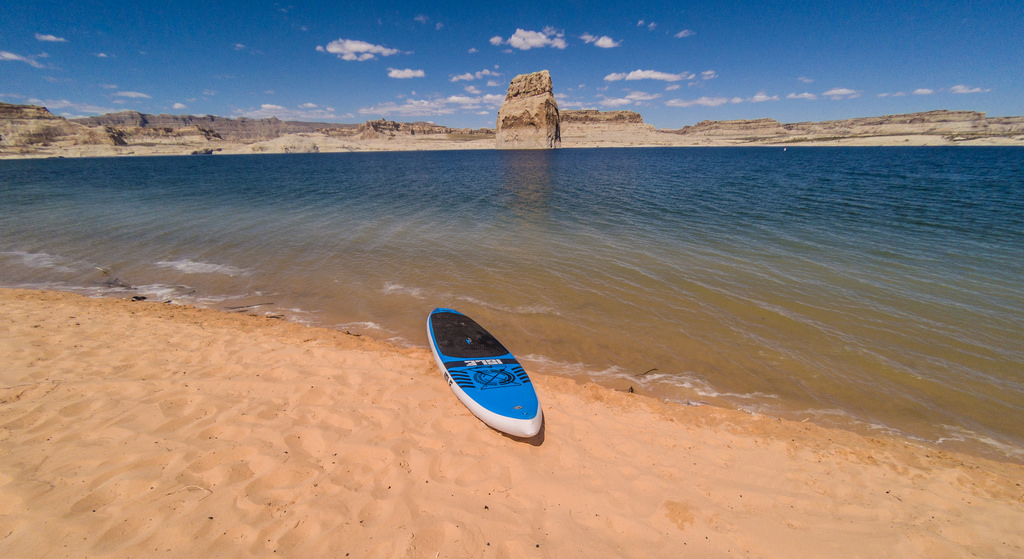
Probably the most scenic campsite was on the rim of a canyon in Virgin, Utah, outside of Zion National Park where I scored a last-minute permit to hike the bucket-list worthy Subway slot canyon.
But, at the end of these adventurous days, it's so nice to come home to a hot shower, cold beer, and a great meal. Our Bago makes for an extremely comfortable base camp, hasn't stopped us from getting to remote spots and has allowed us to spend extended time in some pretty amazing places.
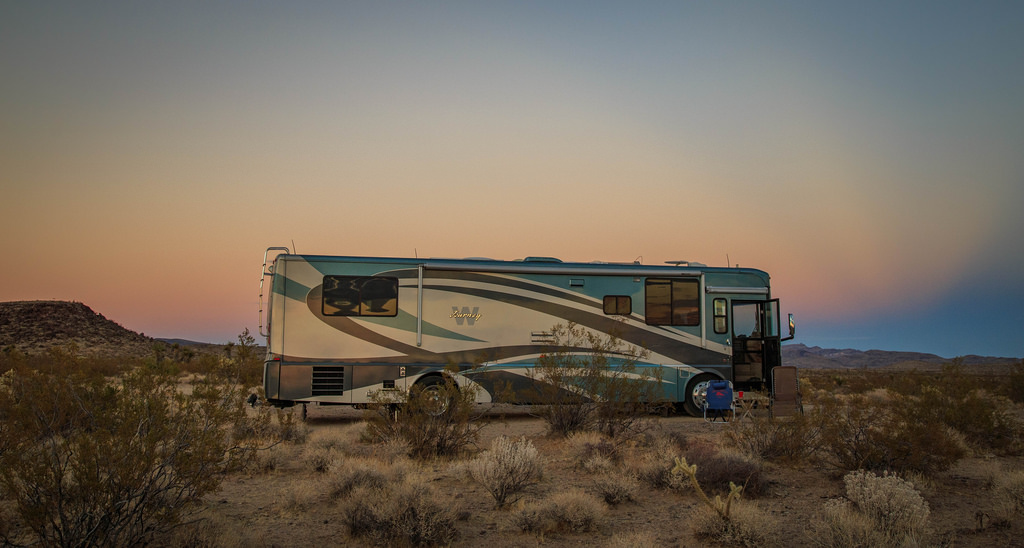
Comments
Comments on this post are moderated, so they will not appear instantly. All relevant questions and helpful notes are welcome! If you have a service inquiry or question related to your RV, please reach out to the customer care team directly using the phone numbers or contact form on this page .